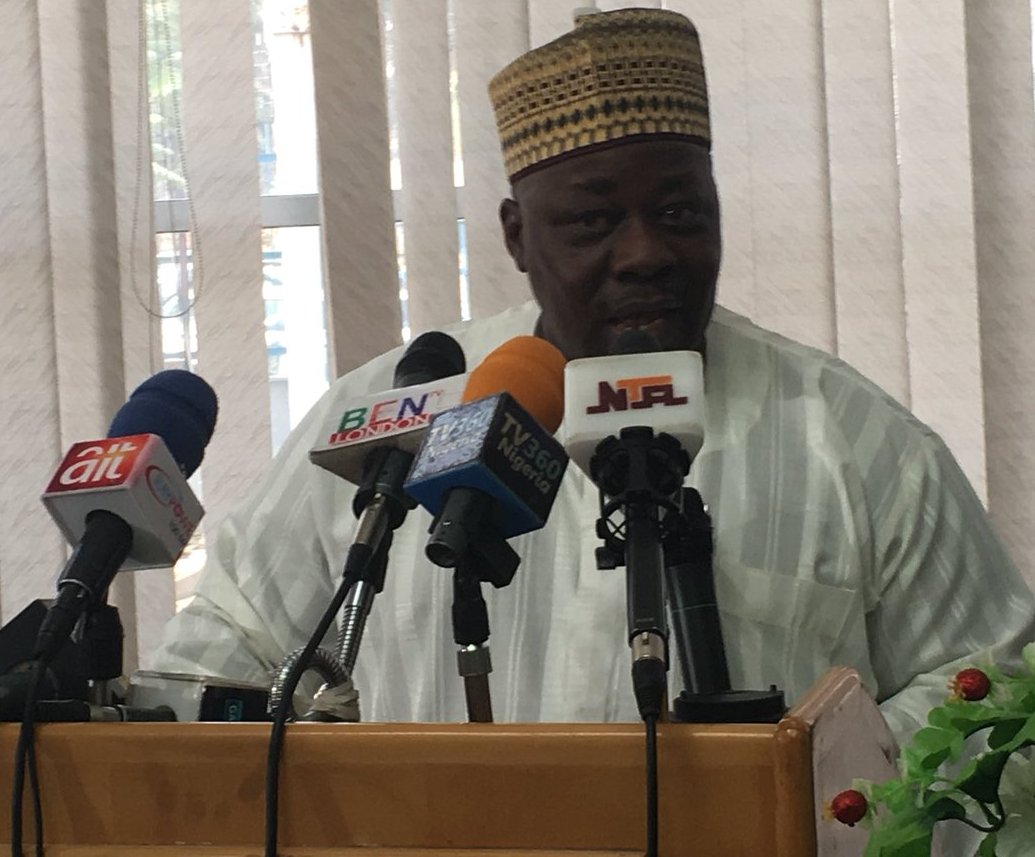The Zabarmari massacre in Borno State has been such a chilling and saddening reminder of where Nigeria has found itself that no glasses could have clicked or clicked at more than half mast mood at another birthday of Prof Jibrin Ibrahim aka ‘Jibo’ a few days back. But Jibrin Ibrahim’s birthday should not, even in the best of times, have just been about clinking glasses but about some serious, philosophical reflections too. That is as Prof Jibrin and as a signifier for his fraction of the Nigerian elite.
One, when he was a Marxist, he was an unusually deep Marxist and went a bit ahead of the level of Marxism that reigned in Nigeria. One stands to be corrected but it is very unlikely that there were/are Marxists that critiqued Critical Theory/Frankfurt School Marxism. Jibo did.
Two, he chastised attackers of liberalism in his famous “History as Iconoclast…” at a time the ideological mood across Africa made it risky to do so. It is not that he was right. Actually, he was ‘wrong’ because there is no standpoint which could have justified that. One would have also thought he was too advanced for that. Three, he said something that only he has said regarding the overarching character of what the practitioners have always called the struggle in Nigeria. He said it was not the struggle for a National Democratic Revolution that the activists think they were involved in but advocacy for democracy.

General Yakubu Gowon: The Nigeria he created from the ashes of Lugard’s version is basically in ruins
Everything that has happened so far validate this contention. And he stands validated. The struggle for radical transformation in Nigeria has recorded success stories, profound sacrifices. It has contributed to keeping Nigeria one and saner. We can make such an assertion with confidence now because we can see where Nigeria is in the past two decades when the radical constituency disappeared from politics. The country is all but gone. Notwithstanding that concession, the struggle for radical political order in Nigeria has been an impoverished attempt when everything is considered, particularly the spaces and sites of ripeness for strategic advances that have been missed.
There are too many things to say on this but let’s pick just two. What is the theoretical standpoint of the struggle for a radical order in Nigeria? None exists. Officially, it is Marxism but Marxism is a living argument. Where does anyone see the key amendments that Marxism has had to absorb in the 21st century in the theory and practice of change in Nigeria?
Apart from what Lenin and co added, the Frankfurt School elements made such a remarkable move in Marxism that has come back very powerfully in the 21st century. Their attack on rationalism as instrumental reasoning is so profound that the absence of that consciousness in both academic Marxism and radical political calculus in Nigeria signifies a major gap. Granted that much of the grave developments in world history that led them to that conclusion took place in Europe, it is not an excuse. It is not because the world wars and the Holocaust are no less horrible than slavery, colonialism and Apartheid.
Rationality as an anxiety-containment mode of managing power that the Frankfurt scholars, particularly Adorno and Horkheimer, advanced must, by now, be something striking for every Nigerian who traces him or herself to Marxism, given the experience of 1985 to 2020, minus 2007 – 2015. That is because that regime was not experimenting with human beings but, with particular reference to the Goodluck Jonathan stretch, just not politically educated, too unorganized and such an undisciplined crowd.

Nigeria in search of original thinkers
That awareness is, however, not that manifest. The matter is worsened by the collective pretension in Nigerian Marxism that the post-Marxist critique does not exist or does not merit critical attention. Yet, we find Marxists groping at comprehending #EndSARS revolt, for example, or trying to fit it into Marxian explanatory models. Marxism made a great intervention in human thought but its key categories are assuming the character of the very capitalism it theorised. Above all, Marxism is Realist in its radius and suffers seriously from the methodological limitations of Enlightenment thinking. And radical politics must come round these.
The second deficiency and which flows from the first is this. What would the radical firmament look like today, either in terms of oversight on the ruling class or as the ruling class itself if, for example, the leading musician in Nigeria now were a ‘Marxist’, if a Bishop Mathew Kukah were a ‘Marxist’, if a number of Vice-Chancellors had traces of ‘Marxism’ in their blood or if the most powerful newspaper straddling popular culture were of ‘Marxism’. None of these happened, certainly because radical politics has been less than creative relative to its tremendous advantages and potentials in the Nigerian context.
Yet, this is the radical politics that is the only centre of gravity for Nigeria. The evidence from the slow and steady transition to the current unthinkable nightmare demonstrates just that: that the efforts around the campuses and in radical platforms such as the NANS of yesteryears, Nigeria Labour Congress, the professional associations, (AUT/ASUU; NARD, NMA, NBA, NUJ, etc), the women platforms, the early or pre-June 12 pro-democracy movement and so on raised and sustained a veneer of a national elite that fulfils the criteria set by the elite theorists. These are (1) exacting or rigorous intellectual training; (2) acquisition of nobility of character, broad horizon and (3) enlarged faculties of foresight and prevention. It is these qualities that the three leading elite theorists based their confidence in saying that “that class and that class alone will freely sacrifice a present good in order to avert a future evil”. With the demise of the Left, where is this sort of ruling class/elite in Nigeria today vis-a-vis the sort of answers to the enormity of crisis the country has found itself? Worse than that is the absence of the Left or a tradition of subaltern radicalism that can discipline this ruling class in its own interest. Yet, the crisis can explode into such a messy embarrassment for everyone, including progressive humanity.
This is the reflective task at this birthday. That is, can the Jibo Ibrahims of this world raise the bar to a more profound contemplation of this crisis, without prejudice to the frantic consultations going on across the concentrations of the elite with respect to managing this T-Junction but still something beyond those consultations? A moment of crisis is a challenge for everyone but more so for thinkers. Certainly, a body of thinkers corresponding to the magnitude of the crisis is not in place, even informally. There is still too much of scratching the crisis on the surface, a charge Prof Jibrin is no less guilty of in proposing a restructuring formula that just cannot work.
The good point, however, is that there must still be a reserve of the Jibogram in him to initiate, join or coordinate the search for a narrative of a more strategic salience to the crisis at hand. Beside the Jibogram – Jibo’s unit of measurement that was/is peculiar to him in the years of intellectual bloom, he straddles the different sides of the efforts at resolving the Nigerian crisis, be it from subject matter mastery of Marxism to a philosophical grounding to do tendency battles in any new site of critical thinkers and involvement in activist politics. It will take him no more than a few hours to find the remaining 24 other members whose statement will cut through the current formulaic answers to a potentially all-consuming implosion.




























